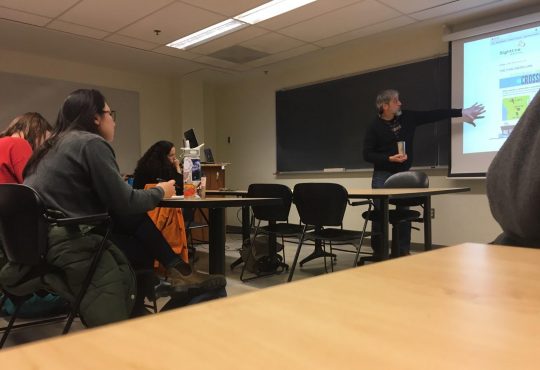Media attention skews perception: knowledge of “great tragedy” is often unequally distributed
This past year has brought about many new challenges to our world, one of which is the use of violence in the name of religion and politics on individuals and groups of people. The Jan. 7 attack on the office of Charlie Hebdo killed 17 people and received an astounding amount of media attention.
Boko Haram, the terrorist Islamist group based in Nigeria, is known best for the kidnapping of 276 school girls from Chibok, Borno and the very recent attacks in Baga, which left somewhere from 150 to 2000 people dead. These are just two examples of the acts of violence committed recently.
When acts of violence against groups of people occur, it is normal for there to be a response from the public; however, the amount of attention one event receives over another is not always equal. Why was it that so many people were outraged and took to social media and the streets to protest the Charlie Hebdo attack and events in the Black Lives Matter movement while little attention was paid to the killing of thousands of people in Nigeria and the public beheadings by ISIS? Is there a reason people feel such a disconnect with certain parts of the world?
Professor Karl Fields in the Politics and Government Department at the University of Puget Sound commented on the issue.
“When we see Boko Haram going into an African village and abducting 250 children or killing 2000 people, we look at that and think ‘that’s foreign and that’s not going to happen to me.’ When we see the events in Paris, many Americans think 9/11 and could imagine what it’s like.” Fields said. “We use our wealth and our geographical distance as a kind of security buffer to say there are nasty things going on in Mexico and Africa but it’s not our problem.”
Sociology and Anthropology Professor Monica DeHart believes that “people often need to feel a sort of sameness with people to try and imagine others’ tragedy or trauma.”
“Unfortunately, there tends to be a prioritization of human life on the basis of shared culture. That’s why when a plane goes down, the first thing the media tells us is how many Americans were on board,” she added.
While socially constructed, cultures have an immense amount of power in terms of binding people together. While it may be hard for someone here to relate to the culture and the environment of Nigeria or Iran, why should that make one tragedy more horrific than another? Are we inherently self-interested?
Fields believes that “the most troubling question is, is this racism? There probably is some of that. There is also narcissism in the sense that we are much more concerned about ourselves and people we perceive to be like us.”
If it is about race or narcissism, where is there to go?
“You can’t excuse ignorance and we need to learn not [to] accept everything we are told,” sophomore Jensen Handwork said.
If it is about narcissism and a desire to only learn about things that relate to us, what does that say about humanity? Why is it appropriate to spend more time mourning certain lives than others? These are not questions that can be easily answered, but are things that should be thought about and discussed both in the classroom and in the real world.
While a big question is why individuals are more interested in certain stories over others, it is also important to examine how the media plays a direct role in influencing what people hear. Sophomore Kelsee Levey believes that our attention on France vs. Nigeria is “a huge reflection of our culture. The media is going to post what people want to see.”
In addition, Handwork thinks that it is a matter of convenience.
“It’s all about what stories the media decides to focus on and in turn, how we choose to receive and digest these stories as either passive or active participants,” Handwork said.
It is impossible to come to a solution or understanding about why things like this happen; however, talking about it and being critical is definitely a step. It is true that “there is great tragedy out there in the world and sometimes we get to the point where we just can’t comprehend how one person could help,” as Fields stated. While we all have felt helpless at one point or another in our lifetimes, it is important to keep telling yourself, “I can’t do everything but I can do my part.”

